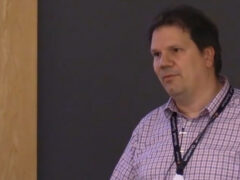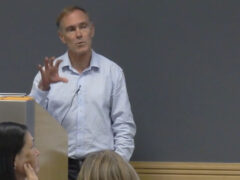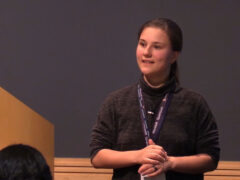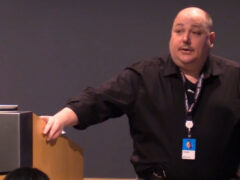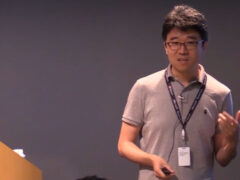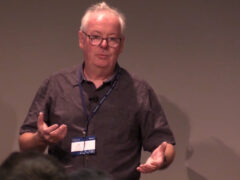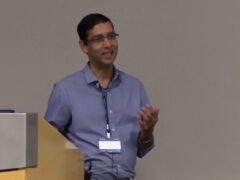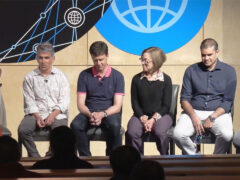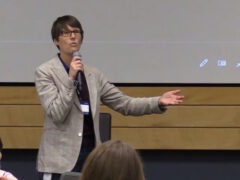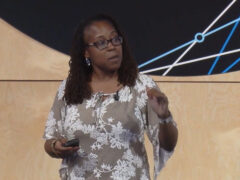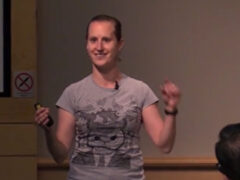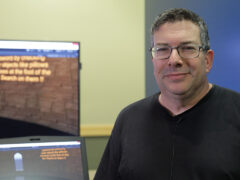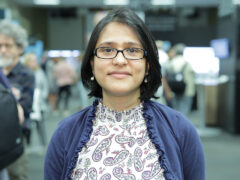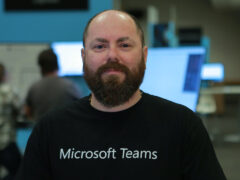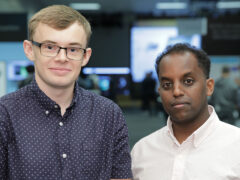Research Challenges in Internet Governance
Internet governance (IG), at its core, is a global discussion between governments, businesses, civil societies, technical experts, academic researchers, and other interested parties on how to shape the evolution and use of the Internet. A central debate concerns whether a federated multi-stakeholder approach, in which all interested parties can participate, is a more appropriate model than a centralized intergovernmental model, where countries would enter into treaties that are negotiated at the government-to-government level. Another issue concerns the role of the US government in managing the operations of the Internet.
This session aims to explain the issues involved in Internet governance, the upcoming milestones that make 2015 a critical year for engaging in IG, and explore how academic researchers can enable more thoughtful, evidence-based dialogues with policy stakeholders in the ongoing debates on issues ranging from required technology innovations, to economic analyses, multi-stakeholder policy frameworks, and studies on socio-cultural impacts.
Speaker Details
M-H. Carolyn Nguyen is a Director in Microsoft’s Telecommunications and Internet Governance Group, focused on policy issues related to Internet governance through engagements with relevant stakeholders globally. Her past activities have included policy initiatives on privacy, security, open/big data, the internet of things, intelligent systems, and their effects on existing social, economic, and policy frameworks. She has worked at the intersection of these disciplines, developing an evidence base to encourage more holistic approaches to policy through collaboration with multidisciplinary researchers and other experts, including the Digital Enlightenment Forum, the World Economic Forum, and Microsoft Research.
Dr. Laura DeNardis is a scholar of Internet architecture and governance and a professor in the School of Communication at American University in Washington, DC. The author of The Global War for Internet Governance (Yale University Press 2014) and other books, her expertise has been featured in Science Magazine, The Economist, National Public Radio, New York Times, Time Magazine, Christian Science Monitor, Slate, Reuters, Forbes, The Atlantic, and The Wall Street Journal. Dr. DeNardis is an affiliated fellow of the Yale Law School Information Society Project and previously served as its executive director. She is a Senior Fellow of the Centre for International Governance Innovation and holds an international appointment as research director for the Global Commission on Internet Governance. She holds an AB in Engineering Science from Dartmouth College, a Master of Engineering from Cornell University, a PhD in Science and Technology Studies from Virginia Tech, and was awarded a postdoctoral fellowship from Yale Law School.
Susan Ariel Aaronson is research professor at The George Washington University’s Elliott School of International Affairs and the former Minerva Chair at the National War College. Dr. Aaronson’s research examines the relationship between economic change and human rights. She is currently directing projects on digital trade and digital rights, repression and civil conflict, and rethinking labor rights. Her work has been funded by major international foundations including MacArthur, Ford, Rockefeller; governments such as the Netherlands, United States, and Canada; the UN, ILO, and World Bank, and US corporations including Ford Motor. Aaronson is the author of six books and numerous articles on trade, human rights, digital trade, and globalization. She is a member of Working Group 2 of the Freedom Online Coalition (24 governments working on digital rights). Aaronson is also the director of the eBay Policy Scholars and is developing a new international affairs curriculum on the Internet.
Stephanie Forrest is Regents Distinguished Professor of Computer Science at the University of New Mexico (UNM) in Albuquerque, and a member of the Santa Fe Institute External Faculty. She was educated at St. John’s College (B.A.) and The University of Michigan (M.S. and Ph.D. in Computer Science). She served as department chair 2006-2011 and recently spent one year at the U.S. Department of State working on cyber-policy. Forrest has over 20 years’ experience leading interdisciplinary research and education programs at UNM, primarily in the intersection of biology and computation, including work on evolutionary diseases such as influenza and cancer, immunological algorithms for computer security, automatically repairing bugs in software, and studying complex systems.
- Date:
- Speakers:
- Brendan Kuerbis, Carolyn Nguyen, Laura DeNardis, Paul Mitchell, Stephanie Forrest, and Susan Aaronson
- Affiliation:
- Microsoft, American University, Syracuse University, George Washington University, University of New Mexico
-
-
Carolyn Nguyen
researcher
-
Jeff Running
-
Paul Mitchell
-
Series: Microsoft Research Faculty Summit
-
-
Quantum Computing and Workforce, Curriculum, and Application Development: Case study
Speakers:- Krysta M. Svore,
- Martin Roetteler
-
-
-
-
Crowd, Cloud and the Future of Work: Updates from human AI computation
Speakers:- Besmira Nushi,
- Vani Mandava
-
-
-
-
-
Empowering People to Achieve More: How Useful a Concept is Productivity?
Speakers:- Brendan Murphy
-
-
Productivity in Software Development
Speakers:- Neel Sundaresan,
- Margaret-Anne Storey,
- Prem Kumar Devanbu
-
-
-
-
-
-
-
Accessible Virtual Reality
Speakers:- Eyal Ofek
-
Calendar.help: A Virtual Meeting Scheduling Assistant
Speakers:- Pamela Bhattacharya
-
Visual Studio IntelliCode
Speakers:- Mark Wilson-Thomas
-
Microsoft Teams: Collaborate with Any Researcher Anywhere
Speakers:- Jethro Seghers
-
Project Alava: Programming Webs of Microcontrollers
Speakers:- James Devine,
- Teddy Seyed
-
AI in PowerPoint
Speakers:- Kostas Seleskerov


